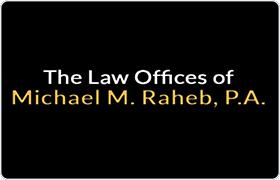Port Charlotte DUI-DWI Lawyer, Florida
Sponsored Law Firm
-
 x
x

Click For More Info:
-
Law Offices of Michael M. Raheb P.A.
2423 First St Fort Myers, FL 33901» view mapCriminal Defense Law Legal Problem? Call Us 24/7
At the Law Office of Michael M. Raheb, we strive to ensure each of our clients receives the individual attention and representation necessary to obtain an optimal outcome.
800-890-8981
David Haenel
✓ VERIFIEDCriminal, Traffic, DUI-DWI, Misdemeanor
Attorney David A. Haenel is one of the most celebrated criminal defense, DUI and traffic ticket attorneys in Florida. Since 2000, Mr. Haenel has been ... (more)
Whitney Clay Coyne
✓ VERIFIEDFelony, Divorce, Traffic, DUI-DWI
Mr. Coyne started his career as a prosecutor for the State of Florida in the Twelfth Judicial Circuit. While acting as a prosecutor, he individually h... (more)
FREE CONSULTATION
CONTACTFREE CONSULTATION
CONTACTFREE CONSULTATION
CONTACTJames Cole Brewer
DUI-DWI, Land Use & Zoning, Commercial Real Estate, Agriculture
Status: In Good Standing Licensed: 7 Years
Terri F Cromley
DUI-DWI, Personal Injury, Immigration, Social Security -- Disability, Mass Torts
Status: In Good Standing Licensed: 27 Years
Jennifer Reghetti
Motor Vehicle, DUI-DWI, Criminal, Medical Malpractice, Nursing Home
Status: In Good Standing Licensed: 7 Years
 Michael M. Raheb Fort Myers, FL
Michael M. Raheb Fort Myers, FL Practice AreasExpertise
Practice AreasExpertise


